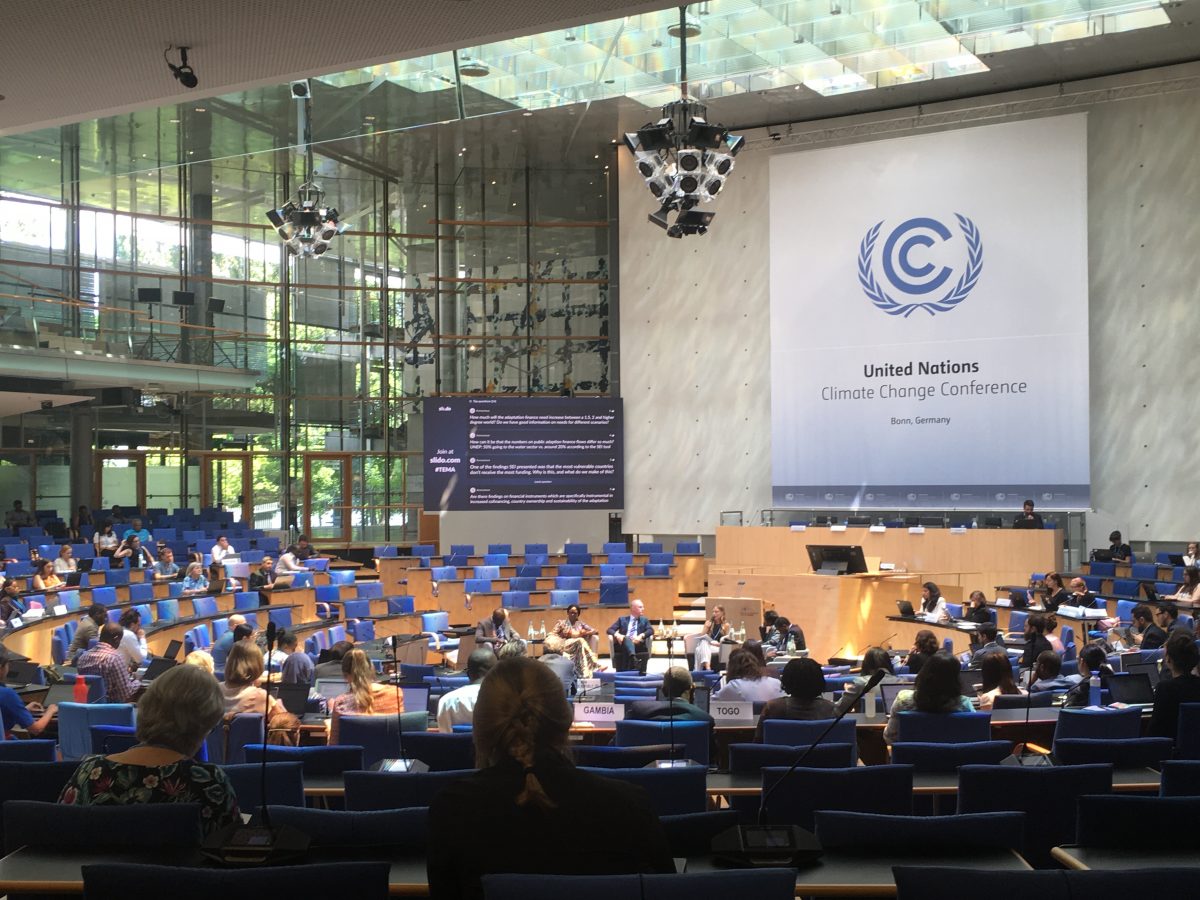This year’s Bonn Climate Change Conference (SB58) starting on Monday, 5 June, is designed to prepare decisions for adoption at COP28 in the United Arab Emirates in December.
Building on the many mandates that emerged from COP27 in Egypt last year, the conference will convene the 58th session of the UNFCCC subsidiary bodies, including a large number of events, and continue discussions on issues of critical importance.
These issues include the global stocktake, the global goal on adaptation, the just transition to sustainable societies, the mitigation work programme, and loss and damage, among others.
UN Climate Change Executive Secretary Simon Stiell said limiting the warming of our planet to 1.5 degrees Celsius is a matter of survival.
“The global stocktake is the opportunity of a generation to correct the course we are on, to design a way forward to tackle climate change with fresh vigor and perspective,” he said.
The technical phase of the global stocktake will conclude at the Bonn Conference, and mark the start of the political phase which will work towards a strong outcome of the first stocktake at COP28.
Another key task at SB58 will be to prepare decisions at COP28 to operationalize the new loss and damage fund and funding arrangements, along with a decision on the host for the Santiago network on loss and damage.
Stiell added: “COP27 in Sharm el-Sheikh marked the shift to implementation of the Paris Agreement, resulting in several important outcomes supporting this historic new phase. Parties know what is at stake, and each country now has to deliver.”
Several events will touch on climate finance, notably the provision of adequate and predictable financial support to developing countries for climate action, including the new collective quantified goal on climate finance.
Other important issues will be increasing the transparency and accountability of climate action and minimizing the impacts that climate change is having on the agriculture and food security sectors.
President of last year’s COP27 in Egypt Sameh Shoukry, said: “The Bonn Climate Conference is an opportune occasion to stocktake the status of implementation of the outcomes and breakthroughs achieved in Sharm el-Sheikh.
“It also provides an opportunity to pave the way towards achieving remarkable progress at COP28 in the UAE later this year. This is most urgent given that the climate crisis is becoming the new reality and we are forced to deal with its consequences daily.
“Acknowledging this, we must seize every opportunity to renew our science-based collective resolve to adhere to the principles of the UN Framework Convention and the Paris Agreement to strengthen our response to ensure observing the Paris temperature goal, keeping the 1.5 degrees within reach, effectively adapting to a changing climate and sufficiently responding to the different forms of losses and damages,” he said.
COP28 President-Designate Dr. Sultan Al Jaber, said the upcoming Bonn sessions are critical for shaping meaningful, pragmatic, and impactful outcomes at COP28.
“As the incoming Presidency, we will ensure a fair, inclusive, and transparent presidency that provides space for all Parties to reach a consensus across the whole agenda.
“That includes making climate finance more available, accessible, and affordable; doubling adaptation finance, operationalizing the loss and damage fund, tripling global renewable energy capacity by 2030; and putting young people, nature, and health at the heart of climate progress.
“We express our full support for the Subsidiary Body Chairs and call on all Parties to ensure we make as much progress as possible across all tracks. We aim to build on the results of SB58 to achieve a balanced and ambitious outcome in the UAE this December,” he said.
Also in Bonn, the High-Level Champions for COP27 and COP28, Dr. Mahmoud Mohieldin and Ms. Razan Al Mubarak will continue to connect the work of governments with the many voluntary and collaborative climate actions taken by cities, regions, businesses, and investors and discuss how to increase the accountability of such actions.
By Dare Akogun





